
Faiz Ahmad Faiz was a Pakistani poet and author of Punjabi and Urdu literature. Faiz was one of the most celebrated, popular, and influential Urdu writers of his time, and his works and ideas remain widely influential today in Pakistan and beyond. Outside of literature, he has been described as "a man of wide experience", having worked as a teacher, military officer, journalist, trade unionist, and broadcaster.
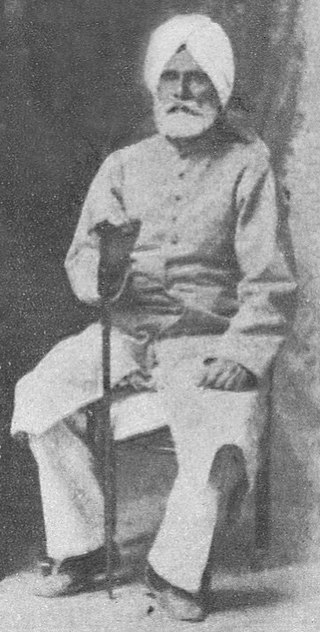
Altaf Hussain Hali, also known as Maulana Khawaja Hali, was an Urdu poet and writer.

Urdu literature comprises the literary works, written in the Urdu language. While, It tends to be dominated by poetry, especially the verse forms of the ghazal and nazm, it has expanded into other styles of writing, including that of the short story, or afsana. Urdu literature is popular mostly in Pakistan, where Urdu is the national language, and in India, where it is an Eighth Schedule language.
Anita Desai, is an Indian novelist and Emerita John E. Burchard Professor of Humanities at the Massachusetts Institute of Technology. She has been shortlisted for the Booker Prize three times. She received the Sahitya Akademi Award in 1978 for her novel Fire on the Mountain, from the Sahitya Akademi, India's National Academy of Literature. She won the Guardian Prize for The Village by the Sea (1983). Her other works include The Peacock, Voices in the City, Fire on the Mountain and an anthology of short stories, Games at Twilight. She is on the advisory board of the Lalit Kala Akademi and a Fellow of the Royal Society of Literature, London. Since 2020 she has been a Companion of Literature.

Mir Muhammad Taqi, known as Mir Taqi Mir, was an Urdu poet of the 18th century Mughal India and one of the pioneers who gave shape to the Urdu language itself. He was one of the principal poets of the Delhi School of the Urdu ghazal and is often remembered as one of the best poets of the Urdu language. His pen name (takhallus) was Mir. He spent the latter part of his life in the court of Asaf-ud-Daulah in Lucknow.
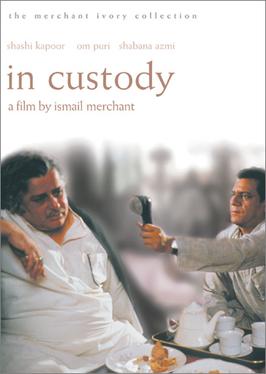
In Custody/Muhafiz is a 1993 film by Merchant Ivory Productions. It was directed by Ismail Merchant, with screenplay by Anita Desai and Shahrukh Husain. It is based upon Desai's 1984 Booker Prize nominated novel In Custody.
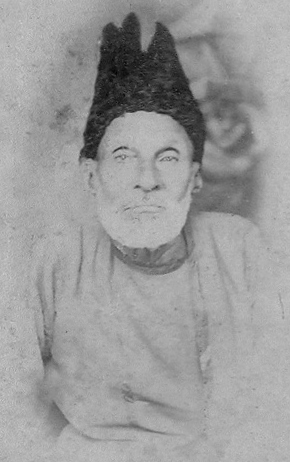
Mirza Asadullah Beg Khan (1797–1869), also known as Mirza Ghalib, was an Indian poet. He was popularly known by the pen names Ghalib and Asad. His honorific was Dabir-ul-Mulk, Najm-ud-Daula. During his lifetime, the already declining Mughal Empire was eclipsed and displaced by the British East India Company rule and finally deposed following the defeat of the Indian Rebellion of 1857; these are described through his work.
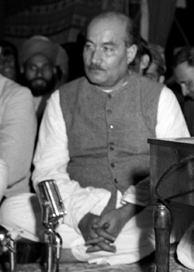
Josh Malihabadi popularly known as Shayar-e-Inqalab was a Pakistani poet.

Mirza Ghalib is a 1954 Indian Hindi and Urdu language biographical film, directed by Sohrab Modi. Based on the life of well-known poet Mirza Ghalib, the film was acclaimed upon release. It stars Bharat Bhushan as Ghalib and Suraiya as his tawaif lover, Moti Begum. The film won the President's Gold Medal for the All India Best Feature Film and the President's Silver Medal for Best Feature Film in Hindi in the 2nd National Film Awards for 1954. The film is also considered as one of Suraiya's best performance.
Ali Sardar Jafri was an Indian writer of Urdu language. He was also a poet, critic and film lyricist.
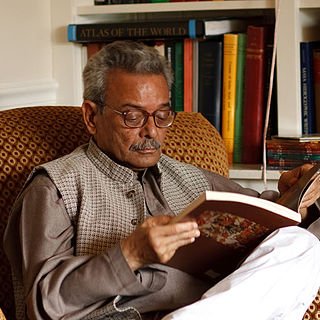
Shamsur Rahman Faruqi was an Indian Urdu language poet, author, critic, and theorist. He is known for ushering modernism to Urdu literature. He formulated fresh models of literary appreciation that combined Western principles of literary criticism and subsequently applied them to Urdu literature after adapting them to address literary aesthetics native to Arabic, Persian, and Urdu. Some of his notable works included Sher-e-Shor Angez (1996), Ka’i Chand The Sar-e Asman (2006), The Mirror of Beauty (2013), and The Sun that Rose from the Earth (2014). He was also the editor and publisher of the Urdu literary magazine Shabkhoon.

Hasrat Jaipuri, born Iqbal Hussain, was an Indian poet, who wrote in the Hindi and Urdu languages. He was also a renowned film lyricist in Hindi films, where he won the Filmfare Awards for Best Lyricist twice – in 1966 and 1972.

Umashankar Jethalal Joshi was an Indian poet, scholar and writer known for his contributions to Gujarati literature. He wrote most of his works in Gujarati.
Akhtar Sheerani was an Urdu poet. He was a romantic poet of the Urdu language.
Janam ("Birth") is a 1985 Indian television film directed and written by Mahesh Bhatt. It is one of the autobiographical films Bhatt created in the early part of his career. The film was remade in Telugu as Aakasamantha. The film premiered on 4 December 1985 on DD National.

Shamim Karhani was an eminent Urdu poet ('Shayar') of the 20th century.
Ankahi is an Urdu television drama serial broadcast by PTV in 1982 and is now considered a cult-classic. It was written by Haseena Moin and directed by Shoaib Mansoor and Mohsin Ali.

Mehr Lal Soni, better known as Zia Fatehabadi, was an Indian Urdu ghazal and nazm writer. He was a disciple (shaagird) of Syed Aashiq Hussain Siddiqui Seemab Akbarabadi (1882–1951), who was a disciple of Nawab Mirza Khan Daagh Dehlvi (1831–1905). He used the takhallus of Zia meaning "Light" on the suggestion of his teacher, Ghulaam Qadir Farkh Amritsari.

Clear Light of Day is a novel published in 1980 by Indian novelist and three-time Booker Prize finalist Anita Desai. Set primarily in Old Delhi, the story describes the tensions in a post-partition Indian family, starting with the characters as adults and moving back into their lives throughout the course of the novel. While the primary theme is the importance of family, other predominant themes include the importance of forgiveness, the power of childhood, and the status of women, particularly their role as mothers and caretakers, in modern-day India.
Karamat Ali Karamat (1936–2022) was an Indian Urdu poet, author, literary critic, and mathematician. Karamat is known for collecting and introducing Odisha's Urdu literature to the Urdu-speaking world. His works include Aab e Khizar (1963), Shu'aon Ki Salīb (1972), Izāfi Tanqīd (1977), Lafzon Kā Aasmān (1984), and Lafzon Kā Ākāsh (2000). Karamat received the 2004 Sahitya Akademi Translation Prize for his Urdu translation, Lafzon Kā Ākāsh.














